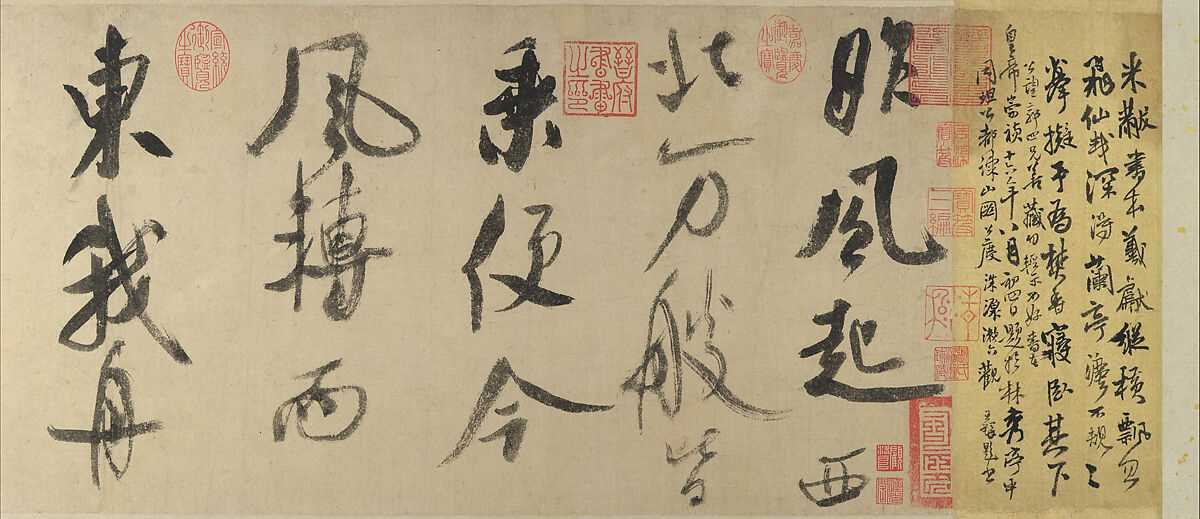
For centuries, the process of selecting government officials in China was based on intellectual achievement and knowledge. This method of recruitment played a crucial role in shaping the structure of the imperial bureaucracy. Individuals had to demonstrate mastery in various areas of philosophy, literature, and governance to be considered for public office. The testing system was a cornerstone of social mobility and political influence.
Scholarly examinations became an essential means for evaluating the abilities of candidates. This system allowed for the promotion of individuals based on their intellectual prowess rather than their social standing or family connections. As a result, it fostered a meritocratic approach in which academic excellence held significant value.
Throughout its long history, this selection process evolved and adapted to the changing needs of the state. Despite facing criticism, it remained one of the most enduring and influential systems in the governance of imperial China, leaving a lasting impact on the culture and political framework of the region.
Civil Service Exam in Ancient China
In the imperial period, the process of selecting officials was deeply rooted in intellectual capacity and moral integrity. This method ensured that only the most qualified individuals would occupy key positions within the government. The focus was on fostering a meritocratic society where knowledge, philosophy, and literature played central roles in the recruitment of officials.
The selection process was rigorous, requiring candidates to undergo multiple stages of testing. Those who passed these tests were chosen for their potential to contribute to the administration, and their success was often seen as a reflection of both personal ability and cultural education.
Throughout the years, the system evolved to accommodate different dynastic periods and political needs. Despite its challenges, it remained an integral part of the governing framework, influencing both the social structure and the development of the state.
| Test Stages | Content Focus | Duration |
|---|---|---|
| Local Level | Basic knowledge of Confucian texts | Several days |
| Provincial Level | Advanced philosophical and literary studies | Up to a week |
| National Level | Mastery of governance, ethics, and statecraft | Several weeks |
Historical Origins of the Civil Service Exam
The roots of the recruitment system for government officials can be traced back to the early imperial dynasties. Initially, leadership positions were granted based on hereditary rights, but over time, the need for a more structured approach led to the development of a formalized method of selecting officials. This shift marked the beginning of a merit-based system where intellectual capabilities were the primary criteria for entering government service.
The early foundations of this system were influenced by Confucian philosophy, which emphasized the importance of knowledge, ethics, and moral conduct in governance. The first steps toward a formalized system began during the Han Dynasty, with small-scale assessments used to evaluate candidates for positions in the imperial bureaucracy. However, it was during later dynasties, especially the Tang and Song, that the system grew in complexity and scope, establishing the framework that would persist for centuries.
| Dynasty | Key Developments | Duration of System |
|---|---|---|
| Han Dynasty | Introduction of initial recruitment methods | 200 BCE – 220 CE |
| Tang Dynasty | Expansion of standardized testing for officials | 618 – 907 CE |
| Song Dynasty | Formal establishment of a national selection process | 960 – 1279 CE |
Key Features of Ancient China’s Selection System
The selection process for government officials in imperial China was distinguished by several key characteristics that set it apart from other systems of its time. At its core, this approach emphasized intellectual ability and moral integrity, ensuring that only those with the right education and ethical grounding could enter the ranks of the bureaucracy. The focus was on creating a meritocratic structure where candidates were judged on their knowledge rather than their family connections or wealth.
The system relied heavily on Confucian teachings, with candidates required to demonstrate their understanding of classical texts, philosophy, and governance. This approach not only shaped the political landscape but also influenced the cultural and social values of the time. In addition, the process was designed to be rigorous and challenging, with multiple levels of testing to ensure that only the most qualified individuals were selected for important governmental roles.
One of the most notable features of the system was its accessibility. While initially limited to certain elites, over time, the opportunity to participate in the selection process spread to a broader portion of society, allowing people from different backgrounds to rise to positions of power based on their intellectual merit. This had a lasting impact on social mobility and the overall structure of Chinese society.
The Role of Confucianism in the Exam
Confucianism played a central role in shaping the intellectual and ethical standards of the selection process for government officials. The philosophy’s emphasis on moral integrity, social harmony, and respect for tradition deeply influenced the criteria used to evaluate candidates. Understanding and applying Confucian values became a requirement for those wishing to enter public service, as it was believed that only those who embodied these principles could govern wisely and justly.
Confucian teachings were incorporated into all stages of the selection system. The core texts, such as the *Analects* and *Book of Rites*, served as foundational materials that candidates needed to study and interpret. The ability to demonstrate mastery of these works was seen as a reflection of one’s moral character and suitability for leadership.
- Moral Conduct: Candidates were expected to show not only intellectual competence but also personal integrity and ethical behavior, aligned with Confucian ideals.
- Respect for Tradition: Confucianism stressed the importance of following established customs and maintaining social order, which was integral to the governance system.
- Focus on Harmony: The teachings emphasized balance and unity, ideals that guided the administrative practices of the time.
This strong link between Confucianism and the recruitment process meant that candidates were not only tested on their academic skills but also on their ability to apply Confucian principles to real-world governance. Those who passed were seen as well-equipped to uphold the values of the state and to contribute to the moral and social stability of the empire.
How the Exam Shaped Imperial Bureaucracy
The intellectual selection process played a crucial role in transforming the structure of the imperial administration. By prioritizing candidates based on their knowledge, skills, and moral character, the system ensured that the bureaucracy was staffed by individuals who could contribute to the stability and governance of the state. This meritocratic approach helped to create a highly organized and efficient system of government officials, where competence and education were the primary determinants of success.
Creation of a Skilled Bureaucratic Class
As a result of this process, a new class of scholar-officials emerged, which became the backbone of the imperial administration. These individuals, often referred to as “literati,” were well-versed in philosophy, law, and governance. Their role in managing the affairs of the empire became essential, as they provided expertise in both day-to-day administration and long-term policy planning.
Impact on Governance and Social Order
By filling official positions based on intellectual achievement rather than birthright or political favoritism, the system helped foster a more stable and efficient government. This allowed for the promotion of qualified individuals to key positions in the military, law enforcement, and local governance, all of which contributed to the smooth functioning of the empire. Additionally, this approach reinforced the importance of education and ethical leadership, which had a lasting influence on the culture and administrative practices of the time.
The Structure of Ancient Chinese Examinations
The system used to select officials in imperial China was organized into multiple stages, each designed to test a candidate’s intellectual abilities and mastery of key philosophical and administrative principles. The structure of these assessments was both rigorous and hierarchical, with different levels corresponding to the candidate’s potential role within the government. The process was designed to ensure that only the most qualified individuals reached positions of power, based on their education and moral integrity.
Levels of the Selection Process
The selection process consisted of several levels, ranging from local assessments to national competitions. Each level focused on progressively more difficult and specialized content, ensuring that only the most capable individuals were selected for positions of responsibility. Candidates who passed one stage were allowed to advance to the next, while those who failed had the opportunity to try again in subsequent years.
Key Subjects Tested
The subjects tested in these assessments were centered around Confucian texts, literature, and practical governance. Knowledge of classical works, such as the *Analects* and the *Book of Rites*, was fundamental to the process, along with the ability to write essays and demonstrate administrative skills.
| Level | Test Focus | Purpose |
|---|---|---|
| Local | Basic Confucian principles and literature | Initial filtering of candidates |
| Provincial | Advanced interpretation of texts and policy | Assessment of deeper intellectual and ethical understanding |
| National | Comprehensive knowledge of governance, ethics, and statecraft | Final selection for high-ranking positions |
Examination Content and Intellectual Challenges
The intellectual demands of the selection process were immense, requiring candidates to demonstrate mastery over a wide range of subjects. The content tested was deeply rooted in Confucian philosophy, literature, and governance, with an emphasis on both theoretical knowledge and practical application. This multi-faceted approach posed significant challenges, as candidates had to display not only their academic prowess but also their ability to apply their learning to real-world governance.
- Classical Texts: Candidates were required to study and memorize key Confucian works such as the *Analects*, *Mencius*, and the *Book of Rites*. Mastery of these texts was considered essential for demonstrating moral integrity and understanding of statecraft.
- Literary Composition: Writing skills were a crucial part of the examination process. Candidates had to compose essays that reflected their understanding of philosophical concepts and their ability to articulate complex ideas clearly and persuasively.
- Ethical Reasoning: The ability to make ethical decisions and apply Confucian principles to real-life governance scenarios was highly valued. This required not only knowledge but also a deep understanding of social dynamics and moral responsibilities.
The process was designed to test not just knowledge, but also intellectual stamina and the ability to perform under pressure. Successful candidates had to demonstrate exceptional discipline, as the exams often lasted for days, testing both mental endurance and the depth of one’s understanding.
- Philosophical Mastery: The ability to deeply analyze and interpret Confucian teachings was essential. Essays often required candidates to apply these teachings to governance and leadership.
- Problem-Solving in Governance: Candidates were challenged to address hypothetical situations related to law, administration, and ethics, testing their ability to apply their learning practically.
Regional and Local Testing Centers
The selection process for government officials in the empire was highly organized, with testing conducted at various regional and local centers. These locations served as hubs where candidates gathered to demonstrate their knowledge and skills. The system of decentralizing the process allowed for a broad range of participants from across the empire, ensuring that talented individuals from different regions had the opportunity to compete for prestigious positions.
Function and Organization of Testing Centers
Each testing center was carefully organized to maintain order and fairness. The local centers were responsible for conducting the initial rounds of assessments, while regional centers hosted more advanced stages of the process. The selection process could take days, and candidates were expected to remain at these centers for the duration of the tests.
- Local Centers: These were smaller locations where candidates from surrounding areas gathered to take preliminary tests. They focused on basic knowledge and general intellectual ability.
- Regional Centers: Larger venues where candidates who passed the initial tests advanced to compete against others from neighboring regions. These centers hosted the final stages of the selection process.
- Centralized Locations: In some cases, candidates who succeeded at regional centers were sent to the capital for the ultimate assessments, ensuring a rigorous final evaluation.
Challenges and Conditions at Testing Locations
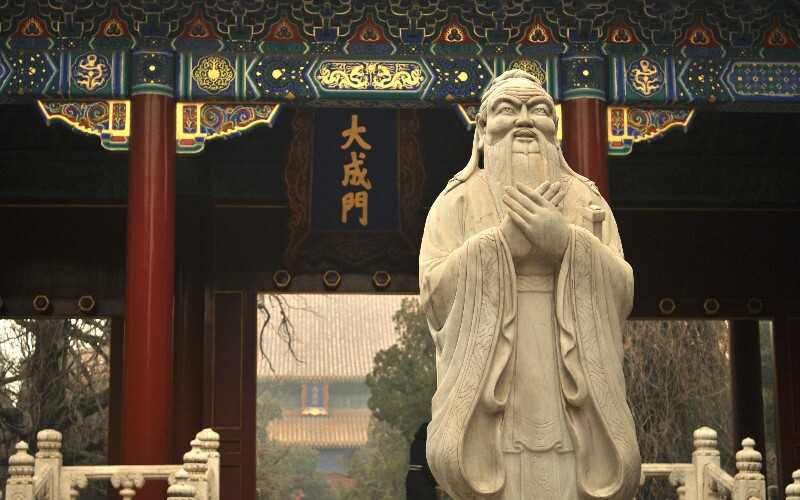
Life in these testing centers was challenging, as candidates faced long days of intense intellectual labor under strict rules. The candidates were confined to these locations during the testing period, often with limited access to outside resources. This created a high-pressure environment where mental endurance was as important as intellectual ability.
- Strict Regulations: Candidates were not allowed to bring in outside materials, and their movements were closely monitored to prevent cheating.
- Long Durations: The tests often lasted several days, with candidates enduring long hours of study and examination in challenging conditions.
- Limited Comfort: The centers were often basic in terms of amenities, requiring candidates to focus solely on their studies and the tasks at hand.
Influence of the Selection Process on Society
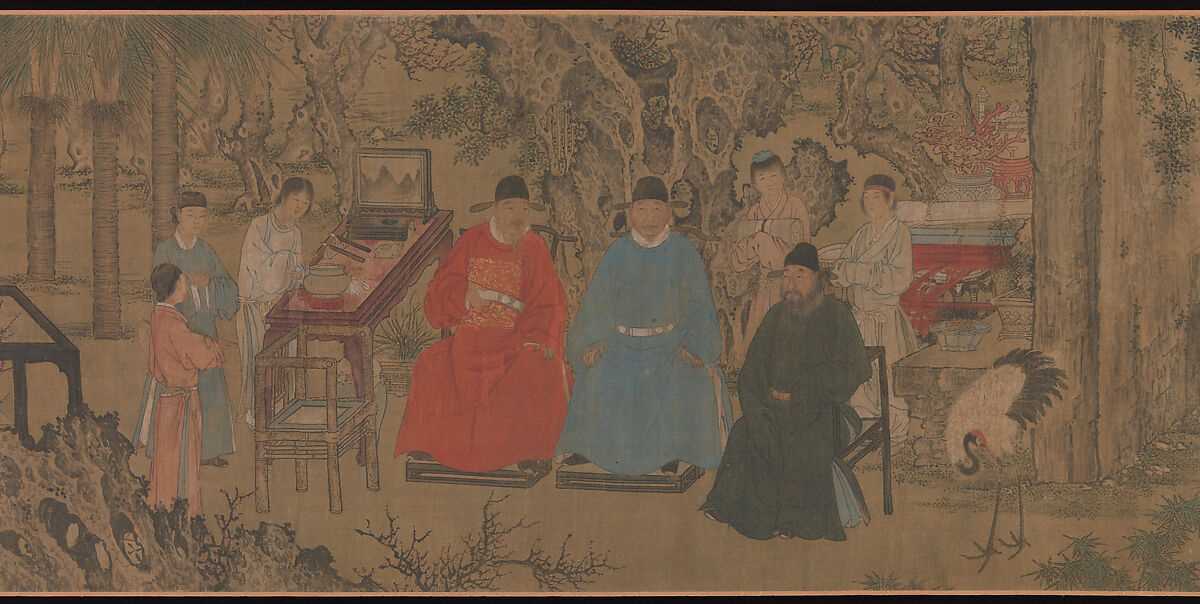
The intellectual competition for official positions had a profound impact on the social structure and culture of the empire. It reinforced the idea that merit, rather than birthright, was the key to success in government. This principle helped to shape the development of a society that valued education, discipline, and ethical governance. The process not only selected capable leaders but also influenced social mobility and the role of intellectuals within society.
Promotion of Education and Social Mobility
One of the most significant effects of the selection system was the emphasis it placed on education. It created a society where academic achievement was seen as a primary means of social advancement. As a result, education became highly valued, and access to learning was considered essential for anyone seeking to improve their position in life.
- Social Mobility: The selection process opened up opportunities for individuals from lower social classes to rise through the ranks based on their intellectual abilities, rather than their family background.
- Valuation of Knowledge: Intellectual pursuits, particularly those related to Confucian philosophy and governance, gained prestige. People who mastered these subjects were seen as contributing to the stability and prosperity of the empire.
- Educational Institutions: The demand for knowledge led to the creation and growth of schools and academies, where scholars could prepare for the rigorous assessments and further the reach of education throughout society.
Impact on Governance and Cultural Norms
The selection process also played a key role in shaping governance by ensuring that individuals in positions of power were well-versed in ethical principles and the art of ruling. This helped to create a bureaucracy that was focused on moral leadership and good governance. Moreover, the emphasis on intellectual ability contributed to a culture where governance was seen as a noble and honorable profession.
- Government Integrity: The system promoted the idea that leaders should be selected based on their competence and moral character, rather than political connections.
- Emphasis on Ethical Leadership: Those who succeeded in the selection process were expected to uphold Confucian values and act as moral exemplars for the society they governed.
- Cultural Respect for Scholars: Scholars and intellectuals gained a higher social standing due to their participation in the selection process, fostering respect for knowledge and learning in the broader society.
Impact on Career Advancement in China
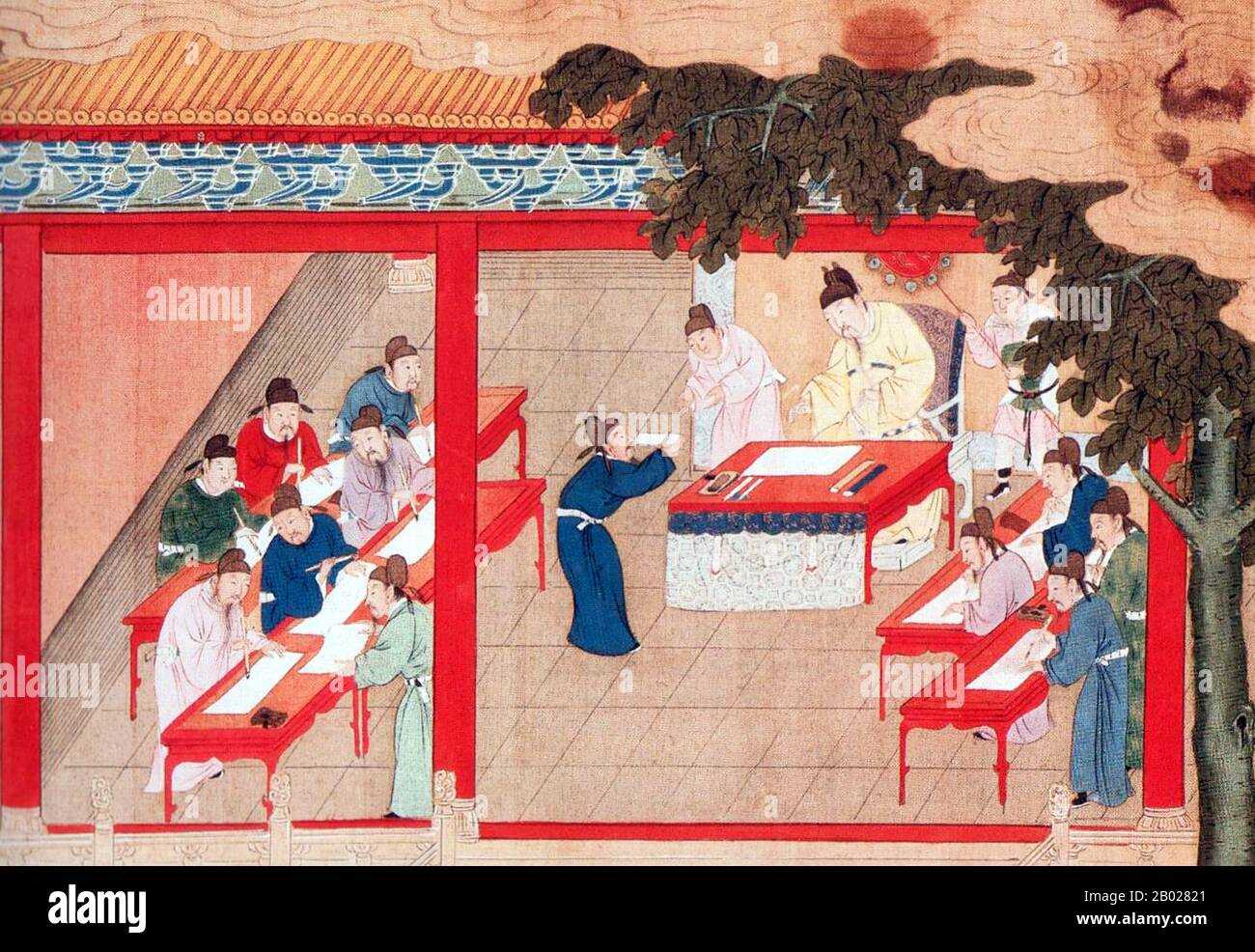
The selection process for government positions had a profound effect on career progression throughout the empire. It offered a structured pathway for individuals to advance in society based on their intellectual abilities rather than their family background or connections. This system created a meritocratic framework that allowed talented individuals, regardless of their social origins, to secure prestigious roles in governance, thus shaping the career trajectories of countless individuals.
Opening Doors for Merit-Based Careers
The emphasis on intellectual achievement meant that those who passed the rigorous assessments had the opportunity to pursue high-ranking positions within the government. This system significantly impacted personal career advancement, as success in the selection process directly correlated with access to positions of influence and responsibility.
- Equal Opportunities: For many, the selection system was a rare opportunity to rise beyond their birth status. Talented individuals from rural or lower-class backgrounds could ascend to influential roles.
- Career Mobility: Success in the assessments provided a clear path to prestigious and well-paying positions, not just within the imperial bureaucracy but also in local governments.
- Professional Prestige: Being selected through the process was seen as a mark of honor, elevating one’s professional standing and earning respect from peers and society alike.
Long-Term Effects on Social Status and Stability
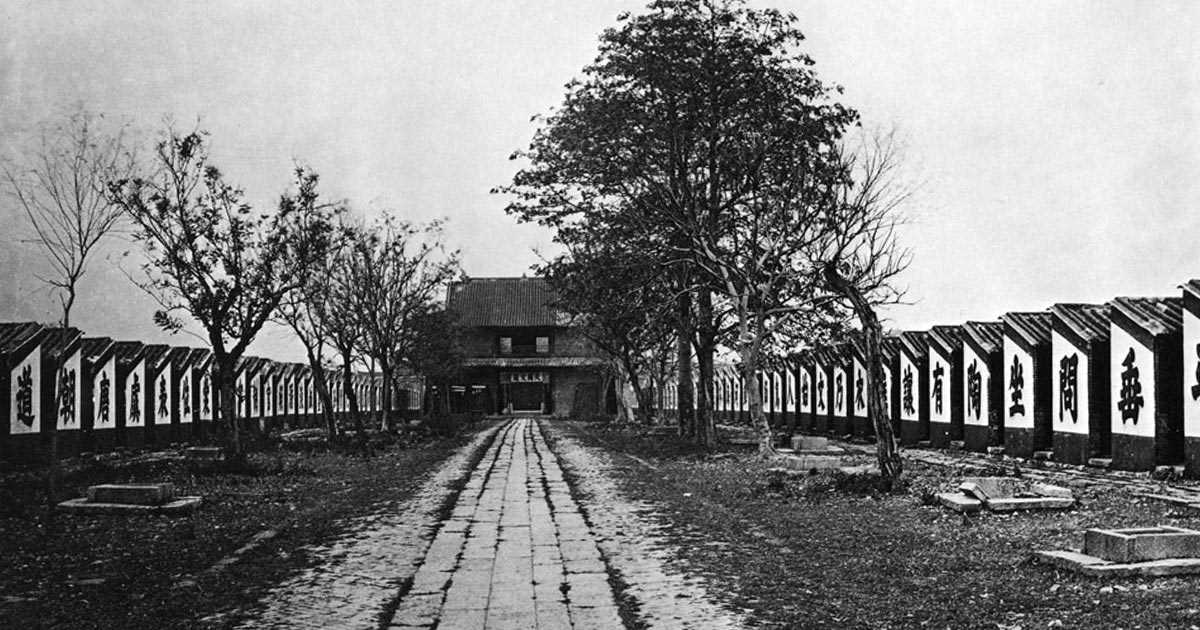
The system also had lasting effects on the social hierarchy. As the pathway to career success was based on intellectual accomplishment, scholars who succeeded in the selection process often found themselves elevated within society, enjoying both material rewards and a respected social status. This meritocratic system helped to stabilize the empire by ensuring that those in power were capable, knowledgeable, and committed to the values of the state.
- Social Recognition: Achieving success in the assessments often meant being recognized not just for one’s abilities but also for their contribution to society and governance.
- Legacy of Influence: Successful candidates often became mentors, shaping future generations and ensuring the continuity of a culture centered around intellectual achievement and governance.
- State Stability: A well-structured career advancement system based on merit helped maintain political stability by ensuring that those in power were capable of fulfilling their duties effectively.
How the Selection Process Changed Over Centuries
Over the course of many centuries, the process used to select candidates for government roles evolved significantly, adapting to the changing political, social, and cultural landscapes. Originally rooted in the principles of Confucianism, the method became increasingly formalized and structured, with different dynasties implementing reforms and modifications to meet the needs of their time. These shifts had lasting impacts on both the candidates involved and the governance of the empire.
Early Modifications and Expansions
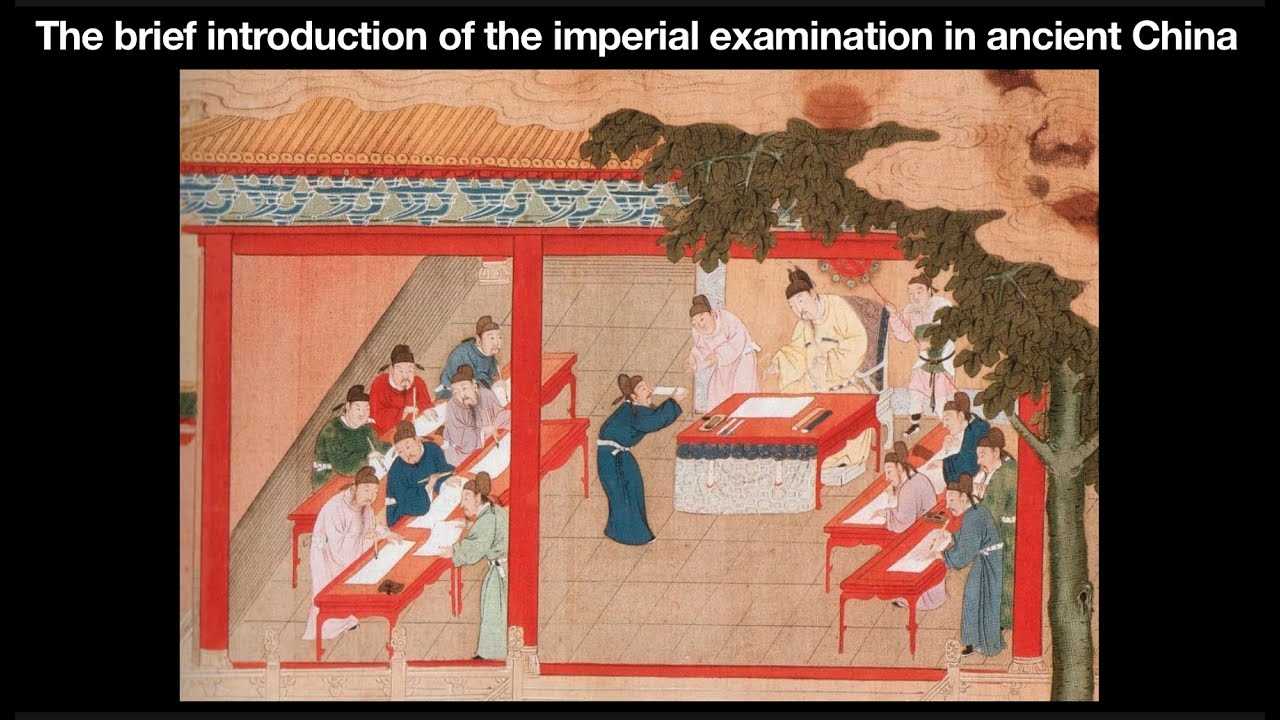
In the early stages, the selection process was relatively informal, relying heavily on local assessments and recommendations. However, as the empire grew and became more complex, the system was refined to handle a larger population and a broader range of government positions.
- Initial Structure: In the beginning, local leaders were chosen based on direct appointments and personal connections, with minimal standardized testing.
- Expansion of Reach: As the empire expanded, the need for a more structured and uniform process arose, leading to the establishment of regional testing centers.
- Standardized Assessments: Over time, the assessments began to focus more on scholarly knowledge and moral integrity, aligning with Confucian teachings.
Reforms and Formalization in Later Periods
By the time of the Tang and Song Dynasties, the selection process had become an essential feature of the imperial bureaucracy. The tests grew more formal, with a rigorous structure that included written essays, poetry, and other forms of scholarly evaluation. This formalization reflected a shift toward professionalism and intellectual merit in governance.
- Implementation of Written Tests: As the tests became more advanced, written assessments became the primary method of evaluation, with candidates required to demonstrate mastery over a wide range of topics.
- Introduction of Different Tiers: The process evolved to include multiple levels, ranging from local exams to national assessments, with the highest levels determining eligibility for the most prestigious positions.
- Increased Complexity: The content of the assessments expanded, incorporating a broader range of topics, including legal principles, history, and philosophy.
Decline and Final Modifications
In the late stages, especially during the Qing Dynasty, the selection system began to decline. While it continued to be used for selecting officials, the influence of foreign powers and the growing influence of Western political thought led to a gradual move away from the traditional method of selection.
- Western Influence: During the late 19th century, foreign ideas on governance began to reshape the structure of government appointments, moving away from purely merit-based systems.
- Declining Relevance: By the early 20th century, the increasing role of modern political institutions and the diminishing power of the imperial bureaucracy rendered the traditional system obsolete.
The Rise of the Scholar-Official Class
The establishment of a rigorous selection process for government positions led to the emergence of a new social class: the scholar-officials. These individuals, often from modest backgrounds, gained significant prestige and influence within the imperial system by demonstrating their intellectual capabilities. Their rise marked a transformation in governance, as intellectual merit became the primary criterion for securing power and authority, displacing traditional aristocratic influence.
Initially, access to high-ranking positions was largely determined by family lineage and political connections. However, with the increasing importance of scholarly achievement, the new system allowed individuals to ascend through intellectual rigor. Over time, this created a class of educated elites who wielded both political power and cultural influence.
The scholar-officials played a pivotal role in shaping the administration of the empire. They were entrusted with the task of governing, administering justice, and implementing policies based on Confucian ideals. Their expertise was central to maintaining the social order and ensuring the smooth functioning of the imperial bureaucracy.
This class came to be seen as the embodiment of moral integrity and intellectual achievement. The scholar-officials not only governed but also set cultural and educational standards, influencing everything from art and literature to law and ethics. Their contributions were crucial in defining the legacy of the empire.
The Civil Service Exam and Social Mobility
The system designed to select government officials created new opportunities for individuals from various social backgrounds to rise through merit rather than birthright. This shift played a crucial role in promoting social mobility, allowing those with talent and determination to access positions of power that were traditionally reserved for the aristocracy. As a result, the empire witnessed the emergence of a more fluid social structure, where intellectual ability, rather than family lineage, determined one’s future.
Opening Opportunities for the Common People
Before the formalization of the selection process, the pathway to influential positions was limited to noble families with established political connections. However, the introduction of a merit-based system allowed people from lower social classes to pursue careers in government. Through dedication to learning and intellectual development, individuals could now compete for prestigious roles that had previously been out of reach.
- Expansion of Access: The opening of testing centers across various regions enabled individuals from rural or less privileged areas to participate in the process, giving them access to the same opportunities as those in urban centers.
- Role of Education: Education became the key factor in social mobility, as those who could afford or had access to the resources for study could improve their social standing through intellectual achievement.
- Challenging Traditional Hierarchies: The system allowed talented commoners to break through the rigid class structures and gain influence, challenging the hereditary dominance of the aristocracy.
Long-Term Impact on Social Stratification
While the selection process opened the door for many, it also reinforced certain social dynamics. The system, while meritocratic in theory, was still heavily influenced by wealth and education. Families with resources could provide their children with better access to education, making it easier for them to succeed in the process. Over time, this created a new elite class–educated individuals who had risen through merit but often shared similar social privileges as the old aristocracy.
- Unequal Access to Resources: Even though the system offered a pathway to success, access to education and the time required to prepare for such a rigorous process remained largely dependent on family wealth.
- Emergence of a New Elite: Those who succeeded in the selection process became part of a new ruling class, one that valued intellectual prowess over birthright.
Challenges and Criticism of the Exam System
While the selection process for government officials brought many benefits, it was not without its flaws. Over time, the system faced criticism from various quarters for being overly rigid, impractical, and, in some cases, deeply unfair. Despite its promise of promoting merit-based advancement, the structure of the process created significant challenges for both candidates and the broader society. These criticisms highlight the inherent contradictions within a system that was designed to be equitable but often perpetuated inequality.
Overemphasis on Confucian Classics
One of the most significant criticisms of the selection process was its heavy reliance on Confucian texts as the main criterion for success. While the Confucian philosophy was central to the values of the empire, many argued that it limited the scope of intellectual and practical knowledge needed for effective governance.
- Lack of Practical Skills: The focus on classical literature and philosophical ideas often overshadowed the practical skills necessary for governance, such as administration, economics, and law enforcement.
- Exclusion of New Ideas: The emphasis on traditional texts stifled innovation and prevented the consideration of more contemporary or practical approaches to problem-solving in governance.
- Limited Representation: By favoring those who could memorize and interpret these classics, the system often excluded people with other valuable skill sets, such as technical expertise or leadership abilities.
Social and Economic Inequalities
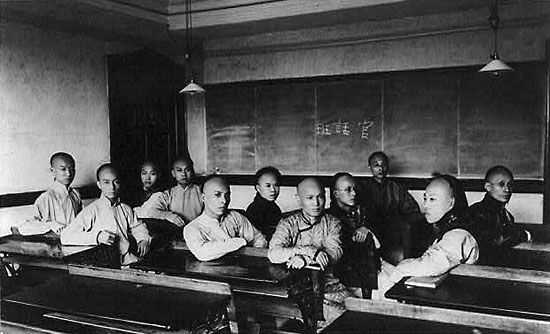
Although the system was theoretically based on merit, it still favored those with the resources to pursue a formal education. The high costs associated with study materials, tutors, and preparation meant that only the wealthier segments of society could afford to fully participate, while the poor remained at a disadvantage. This created a system where social mobility was possible but not equally accessible to all.
- Financial Barriers: The costs of education, including private tutors and study materials, often meant that only families with wealth and status could afford to send their children to the best schools.
- Geographical Disparities: Candidates from rural areas faced additional challenges due to fewer educational resources, making it harder for them to compete on an equal footing with urban candidates.
- Reinforcement of Class Structures: While the process offered opportunities for upward mobility, it often reinforced existing social hierarchies by favoring the already privileged.
Legacy of the Civil Service Exam Today
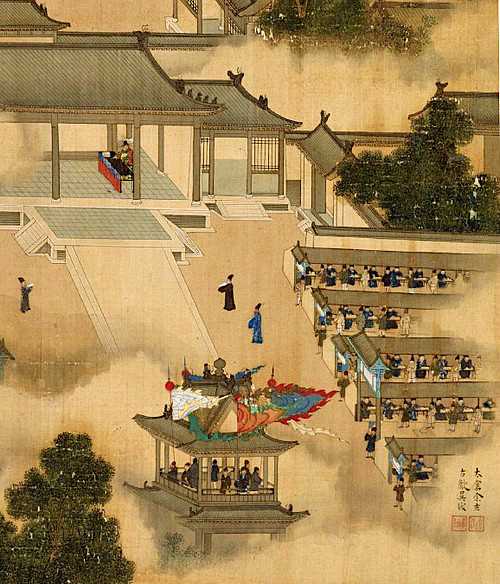
The selection process for government officials, which has its roots in early imperial history, continues to influence modern systems of public administration worldwide. Despite the significant changes in governance, its core values of merit-based appointments and academic rigor have endured. Today, the legacy of this system is visible in the way many governments structure their recruitment processes and in the emphasis placed on education as a pathway to political and administrative success.
Modern bureaucracies still draw on the principles of the system, particularly the belief that qualified and competent individuals should manage public affairs. The impact of this tradition is evident not only in the recruitment of civil servants but also in the ongoing global focus on standardized testing, qualifications, and the role of education in public administration.
- Merit-Based Selection: Many modern government hiring practices reflect the historical preference for merit over family connections or wealth, a principle central to the historical selection process.
- Standardized Testing: The idea of evaluating candidates through a standardized process continues today in the form of various national and international exams used for recruitment into civil service roles.
- Educational Requirements: Just as candidates in the past needed strong academic backgrounds to succeed, today’s civil servants are often required to hold advanced degrees or certifications to qualify for positions in public service.
While the systems in place today have evolved to accommodate modern needs and technologies, the foundational ideals of the historical selection process remain influential. The legacy of this tradition serves as a reminder of the enduring link between education, merit, and governance, shaping the way societies approach public administration and political leadership even today.
Comparison with Other Civil Service Systems
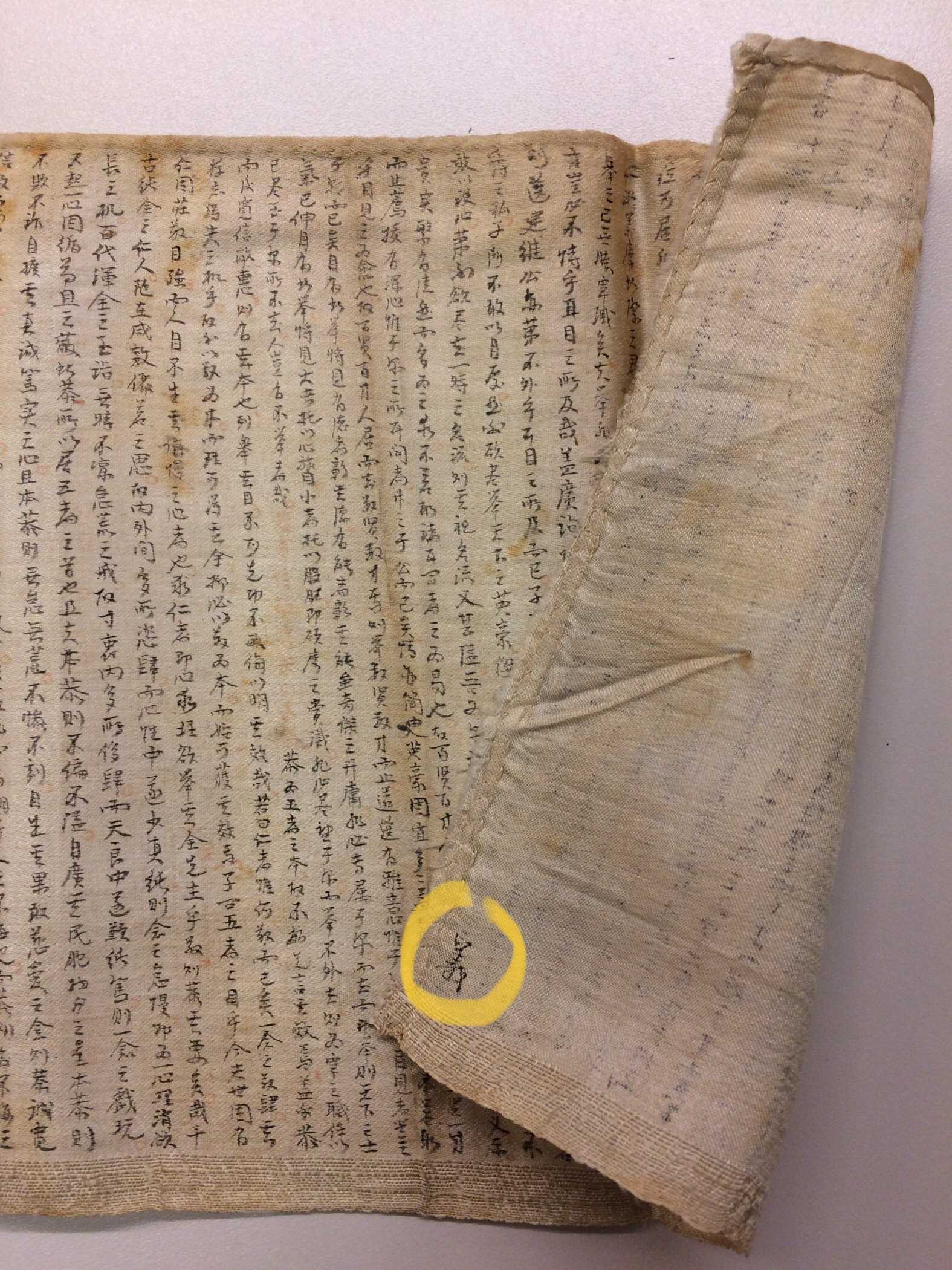
The selection processes used for appointing government officials in different parts of the world vary greatly, but many share core principles of meritocracy and academic qualification. Historically, some systems have been inspired by the model developed in one of the world’s earliest bureaucracies. By examining the differences and similarities between various systems, it becomes evident that while the context and methods have evolved, the central idea of selecting officials based on ability remains a global constant.
For instance, in the Western world, systems such as those used in the United States or European countries often rely heavily on competitive exams, public sector recruitment policies, and appointments based on specialized skills and education. While these systems value formal qualifications, they may not always place as much emphasis on standardized academic testing as the historical model did.
- Meritocracy: Like the historical system, many modern nations adopt merit-based systems for public administration. However, unlike past practices, these systems often incorporate more varied criteria such as work experience and political affiliation.
- Standardized Testing: In contrast to modern approaches, such as those in the United States, where exams are typically only one part of the hiring process, the older model relied almost entirely on written exams as the primary means of selection.
- Political and Administrative Influence: Many contemporary systems, particularly in democratic nations, allow political factors to influence public sector appointments more than in the historical system, where selection was largely focused on education and intellectual competence.
While many contemporary bureaucracies have adapted to new societal and political realities, the historical system continues to provide a foundation for modern methods of governance. Today’s systems, though more diverse, still reflect the long-standing values of education, intellect, and impartiality that were central to past selection procedures.